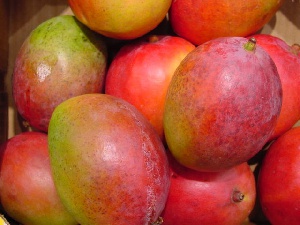The prevalence of fruit-fly infestation continues to thwart the potential of mango production as one of the promising leading non-traditional export crops; this because total eradication or extreme reduction of the impact from fruit-fly invasion is not in sight.
The invasive insect pest, fruit-fly, detected in Ghana from February 2005, attacks several commercially produced fruit and vegetables with mango as one of the preferred hosts. Other host crops include citrus, banana, papaya, water melon, tomatoes, garden eggs, Indian almond, cashew among others.
The growing fruit-fly infestation and other plant-diseases are really dragging Ghana’s horticulture economic potential into a ditch. Ghana among other sub-Saharan countries has been bracketed as a fruit-fly endemic zone, thereby making it very difficult for fruit like mango from the country to penetrate international markets including Europe, USA and South Africa.
Mango production is gradually becoming an alternative livelihood source for many in the morthern-belt of the BrongAhafo Region -- particularly Kintampo and its environs. But it appears the farmers are not getting value for money as they are losing the battle in fighting fruit-flies on their farms. The pervasiveness of the fruit-fly population in other host-prone crops -- especially in the wild -- has made mango-farmers ’quarantine efforts extremely difficult.
In the interim, the Ministry of Food and Agriculture has instituted a fruit-fly awareness campaign, including a management plan aimed at reducing the population of the pests on susceptible crop farms at the beginning of farming seasons. Briefing the B&FT, Brong Ahafo Regional Plant Protection Officer Ebenezer Aboagye mentioned field sanitation as one of the management mechanisms.
“Field Sanitation is a very important suppression method for two reasons: an infected fruit may hold 100s of larvae and/or eggs, and by getting rid of that one fruit you are eliminating future fruit-fly swarms. Pesticides applied to fruits don’t kill larvae and eggs, hence sanitation is the best option,” he said.
Key among the sanitation techniques he pointed out is included: farmers picking up all the dropped fruit and harvesting all the punctured fruit and then burying them (at least 60cm below soil surface). Tying collected infected-fruit in thick black plastic bags and exposing them to the heat of sun for a few days until the fruit is rotten and all the maggots are dead. The collected fruit, he said, can also be destroyed by burning.
Touching on market sanitation, he said: “Rejected and rotten fruit in the market centres and other bulk storage points should be properly disposed of. Traders need to store or display their fruit in appropriate environment to prevent the flies from infesting them”.
Mr. Aboagye further mentioned baiting as one of the techniques under which farmers install poisonous protein baits on their farms. As fruit-flies need sugar for energy and protein food to mature and reproduce, female flies that feed on the attractive baits will then lay infertile eggs, he explained.
Trapping male adult flies using recommended pheromone traps has also been adopted as one of the fighting mechanisms to reduce the population of male flies in the orchard. It has been recommended that trapping continue throughout the year.
Should a farmer lose sight of the control measures, he/she is likely to have the farm ‘engulfed’ by the pests. Mango farmers say the practice is very demanding and are of the opinion that “combatting” the fruit-fly menace in isolation is not the answer to the problem. The Secretary of the Kintampo Mango Farmers Association, Samuel Effah-Nimo, in an interview with B&FT repeated a call on governments in the sub-Region to find a holistic approach to defeat the growing canker.
“I want the government of Ghana to show more commitment to the cause and champion the crusade to bring sister-countries onboard,” he stressed.
Business News of Tuesday, 4 February 2014
Source: B&FT













